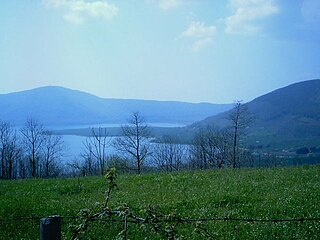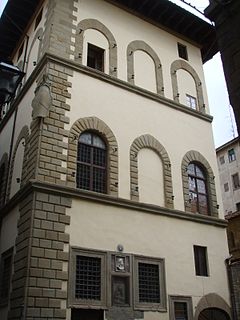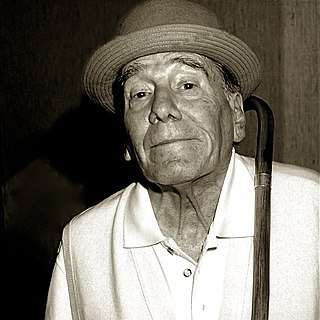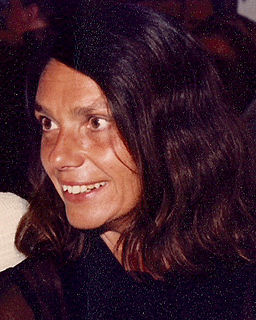Vico or de Vico may refer to:

The Farnese family was an influential family in Renaissance Italy. The titles of Duke of Parma and Piacenza and Duke of Castro were held by various members of the family.

Vetralla is a town and comune in the province of Viterbo, in central Italy, 11 kilometres (7 mi) south of that city, located on a shoulder of Monte Fogliano.

Fossato di Vico is a town and comune of Umbria in the province of Perugia in Italy, at 581 m above sea‑level on the middle slopes of Mount Mutali.

Vico Equense is a coastal town and comune in the Metropolitan City of Naples, in southern Italy.

Giuseppa Eleonora Barbapiccola was an Italian natural philosopher, poet and translator. She is best known for her translation of René Descartes' Principles of Philosophy to Italian in 1722. In her preface to her translation of Principles of Philosophy, Barbapiccola claimed that women, in contrast to the belief of her contemporaries, were not intellectually inferior out of nature, but because of their lack of education. Neapolitan scholars credited Barbapiccola as the individual who brought Cartesianism thought to Italy.

Palma Campania, known until 1863 as Palma di Nola, is a comune (municipality) in the Metropolitan City of Naples in the Italian region Campania, located about 25 km east of Naples.

Lake Vico is a caldera lake in the northern Lazio region, central Italy. It is one of the highest major Italian lakes, with an altitude of 510 m. Administratively, it is part of the municipalities of Caprarola and Ronciglione.

The Rosselli Del Turco are an historic noble family from Florence, Italy. Their origins date to the union of the Rosselli family and the Del Turco family in 1727.
The Prefetti di Vico were an Italian noble family, of German origin, who established in Rome from the 10th century.

Anna Campori was an Italian actress. Since 1951, she appeared in 70 films.

Pietro De Vico was an Italian film actor. He appeared in 70 films between 1948 and 1991. He was born in Naples, Italy and died in Rome, Italy; he was married, from 1937 till his death (1999), to actress Anna Campori.

Cimino or Cimini is the name of one, two or many different families possibly originating from Orvieto. The origin of the name is disputed, but certainly a branch of the family has taken the name from the Cimini Hills, in Latium. The origin of the Cimini name in this context goes back to the Etruscan era. The use of Cimini as a family name can be traced through history. In a study of family names in Roman Legions, the name DeCiminus is found C. Catullius DeCiminus of Troyes was a Roman Federal priest of the Roman Cult in 210 AD, who dies in Lyon. The name Ciminius is also documented in "Repertorium nominum gentilium et cognominum latinorum" The "Journal of Archaeology" states "Ciminius" as a known gentilitium nomina in ancient Rome. The ending "nius" is a clear indicator to the names Etruscan origin (which also may have the ending "na". C. Ciminius is registered as vicomagister of the vicus Silani Salienti first half of the second century, under the reign of Claudius.
Angiola Guglielma Butteri, also known as Angelica Bottero, was a 17th-century Italian artist and nun.
Angiola Teresa Moratori Scanabecchi was an Italian composer and painter.
Cimini is an Italian surname. Notable people with the surname include:
Violetta Elvin is a retired Russian prima ballerina and actress. In 1986, The Times described Elvin as “the only rival ever to give Dame Margot Fonteyn a run for her money”.

Maria Luisa Gabriella Epifani, better known as Muzi Epifani, was an Italian writer and poet.
Rosa Giannetta is an Italian journalist and a professor of sociology. She retired in 2014.













